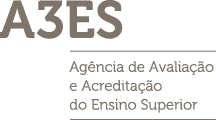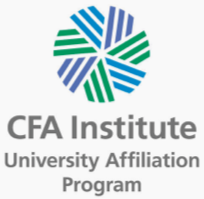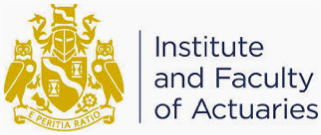
This programme prepares students to carry out research work worthy of publication in scientific journals with a peer-review system. It aims to develop the skills needed to devise and implement new mathematical methods that could be used to tackle problems in the areas of economics and management.
The teaching and research team of the Programme (a) covers a wide range of fields, including, Actuarial Sciences, Dynamical Systems, Financial Econometrics, Macro-and Micro-econometrics, Mathematical Analysis, Mathematical Finance, Operational Research, Statistics, and Time Series.
On completion of the degree, the graduates are expected to:
The Programme is associated with two research centres as hosts units:
Applicants for the School’s PhDs can apply for a variety of scholarships, namely FCT scholarships (granted by FCT or by ISEG research centres) and, in some cases, ULisboa scholarships. The criteria, rules and regulations for applying for scholarships are detailed on our website.
The FCT call for PhD scholarships runs from March 17 until April 16, 2025, at 5pm. For more information contact info.bolsas@fct.pt.
In some cases, PhD students can be enrolled in projects hosted by the research centres or be supported by them. For further information, contact the PhD coordinator.
The PhD Programme in MAEG (Applied Mathematics for Economics and Management) is designed to meet the needs of those who wish to enhance their knowledge of mathematical methods and techniques in order to make original contributions in a particular field or to develop and implement solutions for problems in the areas of economics and management.
This PhD program is intended for those who wish to pursue an academic career as well as those who wish to develop the skills required of a professional in order to devise and implement innovative quantitative approaches to real-world problems.
The PhD programme takes three years to complete. The first year is devoted to coursework and includes the preparation, presentation, and viva voce defense of the thesis research project by the student before an examination panel. The next two years are dedicated to research, leading to the design, writing, and defense of an original dissertation in an area of Applied Mathematics for Economics and Management.
Please note that if any non-Portuguese speakers are enrolled in the Programme, then lectures will be taught in English.
| Year 1 – Semester 1 | Professor | Credits |
|---|---|---|
| Advanced Topics of Econometrics* | Pierre Hoonhout | 10.0 |
| Advanced Topics of Statistics* | Rui Paulo | 10.0 |
| Analysis and Optimisation* | Manuel Castro Guerra | 10.0 |
| Computational Mathematics* | João Janela | 10.0 |
| Elective | – | 6.0 |
| Seminar I | Nuno Brites | 4.0 |
| Year 1 – Semester 2 | Professor | Credits |
|---|---|---|
| Elective | – | 6.0 |
| Preparation of the Thesis Project | Nuno Sobreira | 24.0 |
| Year 2 | Credits |
|---|---|
| Thesis (Research Seminar) | 60 |
| Year 3 | Credits |
|---|---|
| Thesis (Research Seminar) | 60 |
| Electives | Professor |
|---|---|
| Actuarial Data Science | João ARF Bastos |
| Advanced Econometrics | Paulo Parente |
| Advanced Microeconomics | Joana Vaz Pais |
| Advanced Risk Theory | Alfredo Egídio Dos Reis |
| Computational Economics | Tanya Araújo |
| Computational Tools for Actuaries | Nuno Brites |
| Financial Econometrics | João Nicolau |
| Financial Markets and Investments | Raquel Gaspar |
| Interest Rate and Credit Risk Models | Raquel Gaspar |
| Mathematical Economics | José Pedro R Gaivão |
| Machine Learning and Data Mining | João Bastos |
| Macroeconometrics 2 | Gabriel Florin Zurkis |
| Mathematical Methods for Finance | João Guerra |
| Panel Data | Isabel Proença |
| Pension Funds | Maria Pires Lima |
| Probability Theory and Stochastic Processes | Telmo Jorge Peixe |
| Risk Theory | Alfredo Egídio dos Reis |
| Ratemaking and Experience Rating | Alfredo Egídio dos Reis |
| Stochastic Differential Equations and Applications | Nuno Brites |
| Stochastic Calculus | João Guerra |
| Survival Models and Life Contingencies | Onofre Simões |
| Time Series | Nuno Sobreira |
| Time Series Analysis and Forecasting | Jorge Caiado |
See the description of each Curricular Units here.
The entry requirements are a Master’s or BSc degree (with a curriculum of four years or more) in Mathematics, Statistics, Economics, Finance, Management, Physics, or Engineering.
The degree syllabus and the grade obtained must provide evidence that the applicant has a strong background in Mathematics.
Applicants who have not yet completed their degree may be accepted conditionally if they expect to do so before the start of the programme. Applicants who do not hold any of the degrees listed above may also be eligible for admission, provided that the curriculum is deemed suitable for the programme.
These are provisional tuition fees for 2025/26, subject to confirmation by the Universidade de Lisboa statutory bodies.
| Students from | 1st Year | 2nd – 3rd Year | 4th – folowing years |
| Within the European Union | € 3,000 | € 2,000 | € 1,000 |
| Outside the European Union | € 4,000 | € 3,000 | € 3,000 |













